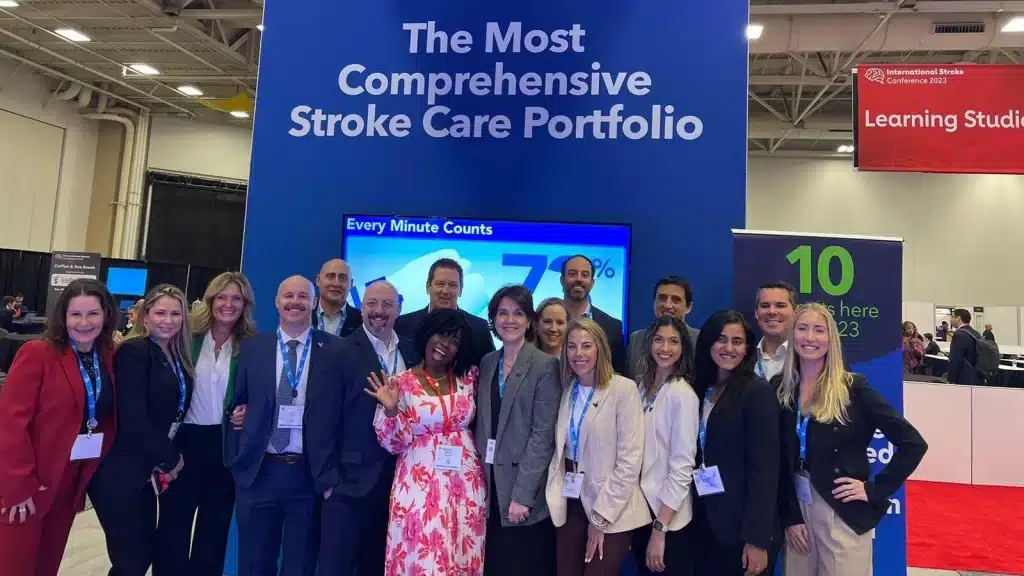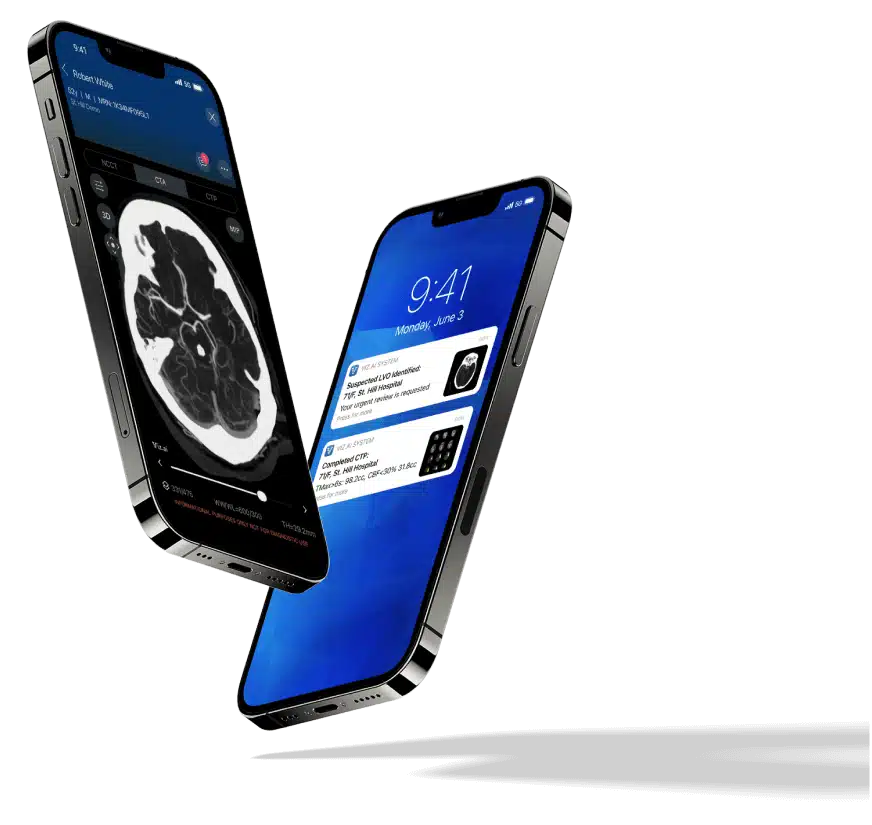Team Viz
Feb 16, 2023
5 min

The Viz.ai team just returned from attending the International Stroke Conference (ISC), a 3-day conference where thousands of attendees collaborate and learn about new scientific advancements in brain health.
The Viz.ai team just returned from an action-packed trip to Dallas to attend the American Heart Association (AHA) 2023 International Stroke Conference (ISC), a 3-day conference where thousands of attendees collaborate and learn about new scientific advancements in brain health.
1. AI as the Standard of Stroke Care
We hit the ground running with new results announced from the large-scale, multi-center, real-world VALIDATE study (Validation of Artificial intelligence to LImit Delays in Acute stroke Treatment and Endovascular therapy). This was an independent study, funded by Neuroscience Innovation Foundation. Published on day one of the conference by Telespecialists, these results showed why our Viz AI-powered platform should become the standard of care for identifying acute strokes and coordinating their care.
The VALIDATE study analyzed data from 14,116 acute stroke consultations performed by neurologists in emergency departments at 166 facilities in 17 states and compared the results from hospitals with the Viz.ai platform and without AI.
During a stroke, “time is brain” – every minute that brain tissue is starved of oxygenated blood results in the death of about two million neurons. In those emergency situations when every minute counts, the Viz.ai platform delivered a 39.5-minute reduction in time taken from patient arrival to first contact with the neurointerventionalist.
2. Preventing Secondary Strokes
35% of ischemic stroke patients seen by a neurologist have had a cryptogenic stroke or one of unknown cause, and should be referred to a cardiologist. This is a crucial step because without comprehensive treatment, more than 23% of those patients will likely have a second stroke. However, because there is no standard process or it takes too long to arrange the cardiology referral, many patients are lost to follow up.
Focusing on those striking statistics, we held a neurocardiology session at ISC with Dr. Yasodara Siddharthan, from the University of Kentucky Healthcare and Dr. Jessica Lee, a neurologist at University of Kentucky Health System, to discuss ways of optimizing and accelerating care pathways between the neurology and cardiology teams to help prevent cryptogenic stroke patients from having a secondary stroke.
Drs. Siddharthan and Lee discussed how they used Viz Connect within the Viz Cardio Suite to improve inter-team communications. Citing data from 400+ cases, they described witnessing increased referrals to the cardiology team (2x increase overall and 50x inpatient referrals), and quicker times to consult (median referral time for an electrophysiology study was less than one minute and heart referrals took just 1-2 days). They also saw improved follow-up and patient care (up to a 3x increase in patients completing the pathway and having a diagnostic procedure). Due to increased transparency, Viz Connect also produced actionable insights, helping to drive continuous improvement within their institutions.
Dr. Lee referred to Viz Connect as “the easy button” to direct cryptogenic stroke patients for cardiology follow up and extolled the virtue of it taking just one to two minutes for the cardiology team to review the referral message without having to chase people for follow up.
3. New AI Requirements for Stroke Programs
We were excited to see the new AHA Scientific Statement: “Ideal Foundational Requirements for Stroke Program Development and Growth” discussed in detail during an invited session at ISC because it clearly positions AI as central to the standard of care for stroke.
For example, AHA’s “Journey to Stroke Center Excellence” graphic, which describes its new standard criteria for the structure of stroke centers to enhance system efficiency and patient outcomes, stipulates the use of “advanced neuroimaging with AI (CT and CTA)” at all four facility levels, ranging from acute stroke-ready hospitals to comprehensive stroke centers.
It is testament to AI’s proven ability to enhance communication within stroke care teams and increase workflow efficiency, which leads to faster diagnoses and treatment, resulting in better patient outcomes and shorter hospital stays. In just 6 short years since Viz.ai received the first de novo clearance from the FDA, AI-powered care coordination for stroke has been embraced by the multidisciplinary stroke care communities.
Underscoring our comprehensive clinical research program, we also presented 11 abstracts at ISC describing studies in which our Viz platform improved stroke detection, care coordination, clinical trial recruitment, and volume calculations for intracerebral hemorrhages and detection of incidental aneurysm.
Thank you to everyone who took the time to connect with us at ISC – whether you stopped by the booth, had a pre-scheduled meeting, attended our presentations in the Learning Studio, or joined our party at Jaxon Texas Kitchen & Beer Garden to celebrate the proven clinical impact of the Viz Platform.
We hope to see you at the next event! You can find us in booth #2313 at the upcoming American College of Cardiology Conference in New Orleans.
If you would like to learn more about Viz.ai or are interested in a product demo, please reach out to us here.
